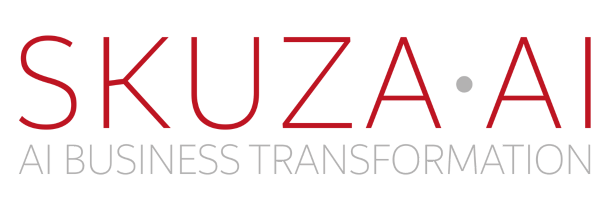Introduction
Business analytics is the process of using data, statistical and quantitative analysis, and predictive modeling to gain insights and make informed decisions for a company. It involves collecting, organizing, and analyzing large amounts of data from various sources to help businesses understand and improve their operations, customer experience, and overall performance.
The goal of business analytics is to provide accurate and real-time information to help make informed decisions. The application of business analytics creates the possibility of acquiring a more in-depth comprehension of the market, the competitors, and the customers. By analyzing data, businesses can identify trends, patterns, and relationships that can help them grow and achieve higher success.
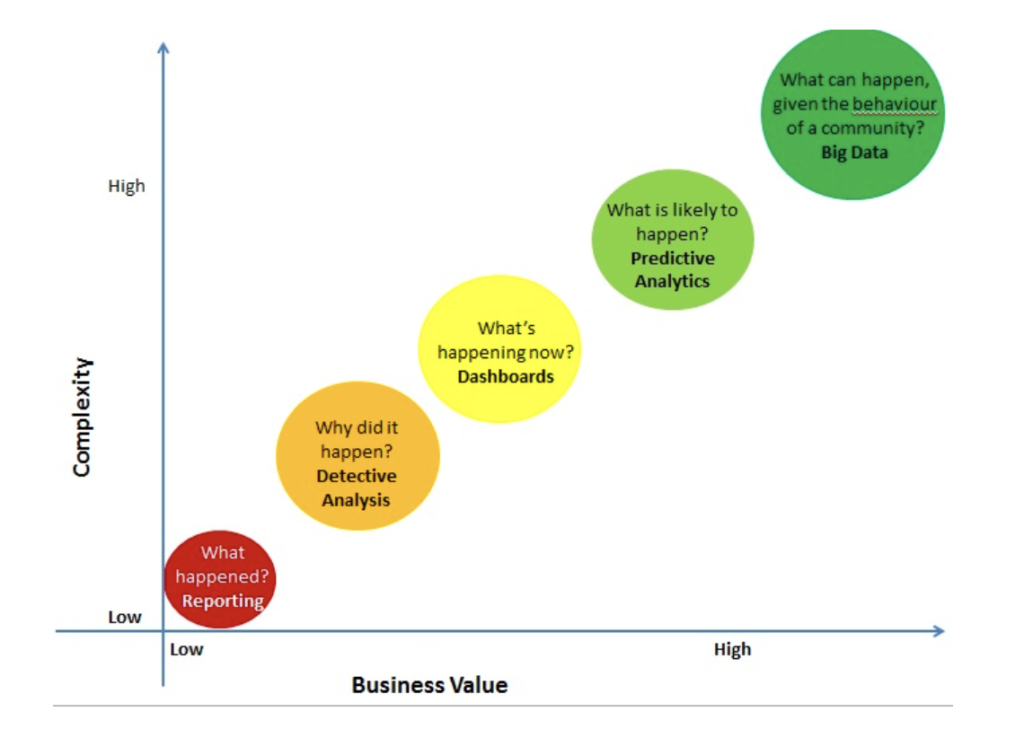
Different Types of Business Analytics
There are various types of business analytics and there are four main categories that they can all fall under: descriptive, diagnostic, predictive, and prescriptive.
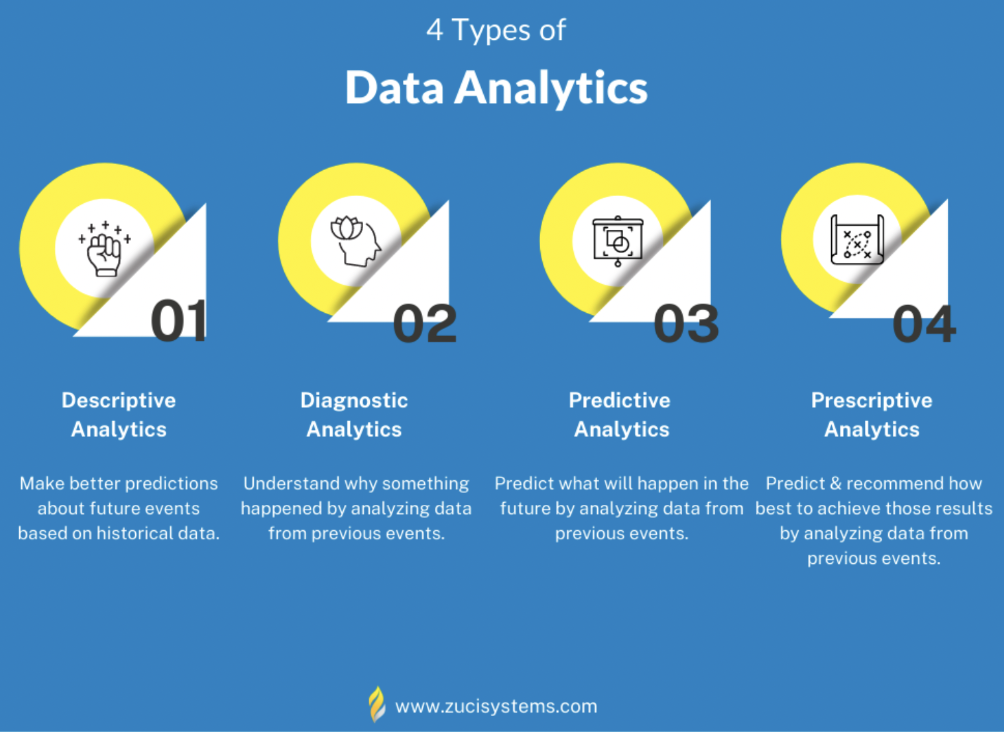
Descriptive analytics focuses on events that happened in the past and provides a detailed picture of how events occurred. With interpretation of historical data, trends and patterns can be identified. The key advantage of descriptive data analytics is that it helps people understand why and how exactly something happened.
Diagnostic analytics focus on past performance to determine which elements influence specific trends. It also helps answer why an issue occurred by interpreting historical data to identify factors that resulted in an event. This type of analysis can help companies understand why something happened in the past and how they can prevent potential errors from recurring in the future.
Predictive analytics uses existing data, statistical models, and machine learning techniques to forecast future outcomes or trends. Companies often use this method when developing new products or services because it gives them an idea of customer needs in the future based on their past behavior.
Prescriptive analytics utilizes past trends and data to recommend actions on how to handle future situations. Through the use of deep learning and complex neural networks, this type of data analysis helps optimize resources and improve performance.
How Do Business Analytics Help a Business Grow
Business analytics have numerous benefits that can lead to business growth such as reducing potential risks, enabling data-driven decision making, allowing for efficient streamlining of operations, increasing employee productivity, and improving customer satisfaction and service.
Reduces Potential Risks
Identifying and Predicting Potential Risks
By analyzing data from various sources, business analytics can help identify potential risks that a business might face. For example, data analysis can help identify market trends, customer behavior patterns, and financial risks. Business analytics can help predict and mitigate risks by using historical data and statistical models. Also, predictive models can be developed to anticipate future market trends, which can help a business take proactive steps to mitigate potential risks.
Monitoring Risks in Real Time
Additionally, business analytics can be used to monitor potential risks in real-time. Businesses can use real-time data to monitor changes in market trends, customer behavior, or supply chain disruptions. This can help the business solve problems through strategic decisions and respond quickly to potential risks.
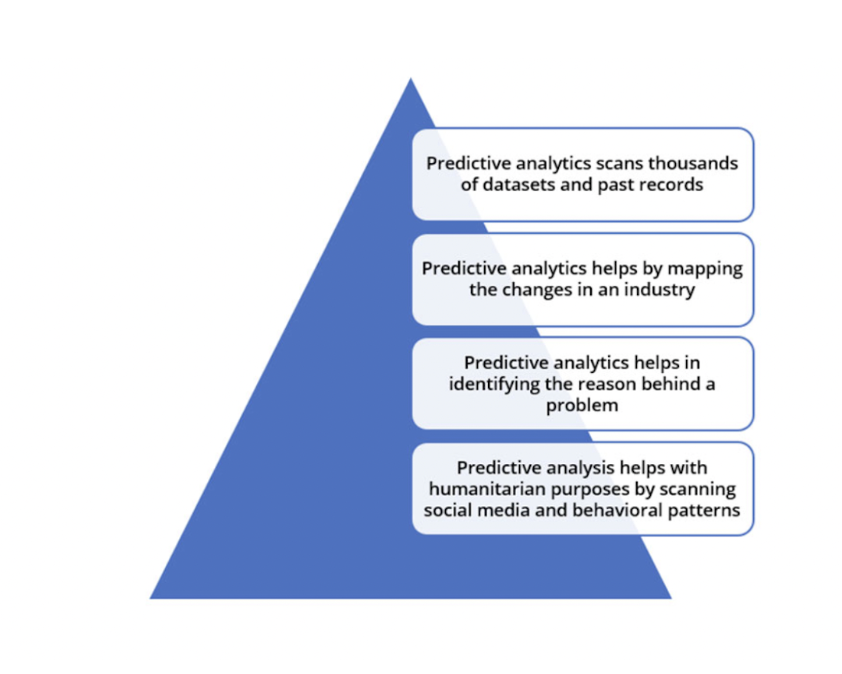
Enables data-driven decision making
Business analytics can help improve decision-making by providing accurate and timely information. Analytics help companies make informed decisions on strategic issues by providing crucial information on current and historical performance of the company along with future trends, expected demands, customer behavior etc.
Efficient Streamlining of Operations
Reduced Costs
Business analytics can help improve efficiency by helping companies reduce costs through improved planning and forecasting techniques. This will help businesses save money and increase profits by lowering the overhead costs that are associated with time spent on administrative tasks such as filling out paperwork, making phone calls, or sending emails, when these activities can be completed much more quickly and efficiently online.
Enhance Efficiency of Operations
Business data analytics can help organizations enhance the efficiency of their operational processes. Monitoring the supply chain can help gain a better understanding of bottlenecks and delays, as well as potential issues. For example, in the event that a demand forecast indicates that a particular supplier will not be able to manage the required volume during the holiday season, an organization may choose to either supplement or replace that supplier.
Increase employee productivity
Data analytics are also useful in the human resources department of a company to increase employee productivity and engagement. Data analytics allow for improved overall performance in many ways such as:
- Analyzing employee performance, attrition patterns, and retention risks
- Assess the effectiveness of training programs to improve based on historical trends
- Determine the impact of internal promotions on employee morale and motivation
- Identify trends of possible problems with staff retention to understand root causes and prevent potential errors in the future
- Analyze past performance and recruitment campaigns to make improved changes to hiring decisions
Improve customer satisfaction and service
Data analytics provide deeper insights which help drive customized experiences, ensuring customer satisfaction. Analytics make it possible to monitor customer behaviors in real-time and effectively target the right customers with the right products or services. By understanding customer needs and buying habits, businesses can tailor their offerings to meet customer demands and provide a more personalized experience. This allows them to better serve, retain customers, and build loyal relationships that will result in increased sales and a positive reputation for the company.
Some ways that companies can utilize data analytics uses to enhance customer service include:
- Identifying complaints and learning customer feedback regarding products or services
- Predict what products and services customers may buy next based on customer behaviors
- Provide personalized recommendations for customers based on historical data
- Offer self-service options, which reduce the cost of delivering support
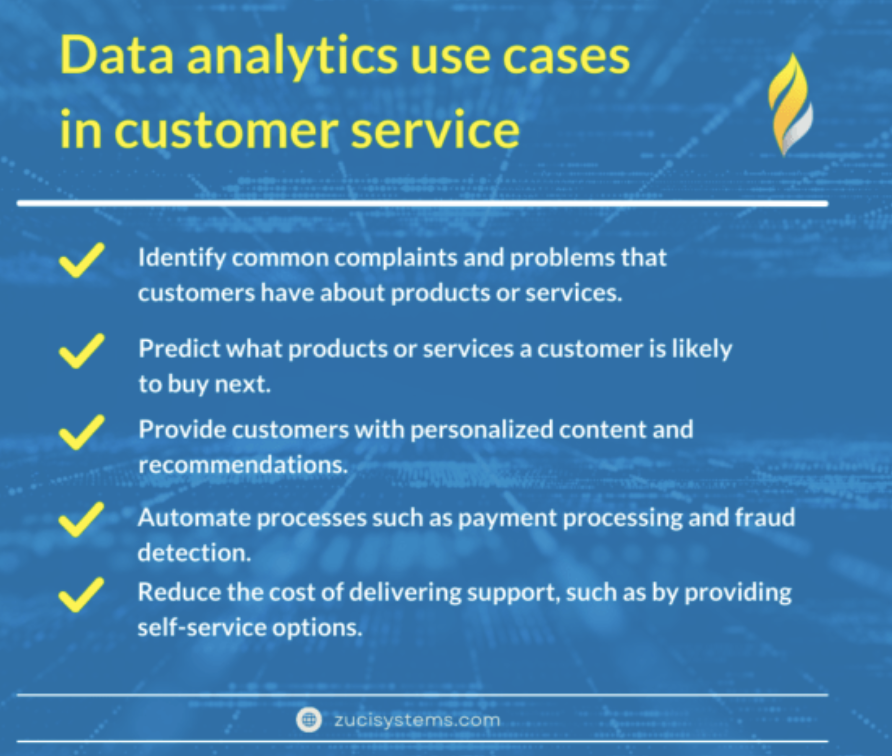
Conclusion
In summary, business analytics is the process of analyzing data to gain insights and make informed decisions in a business setting. It involves using various statistical methods and techniques to extract meaningful insights from data to optimize business operations and increase profitability. Ultimately, analytics enable businesses to maximize their efficiency and grow by reducing potential risks, enabling data-driven decision making, allowing for efficient streamlining of operations, increasing employee productivity, and improving customer satisfaction and service.
